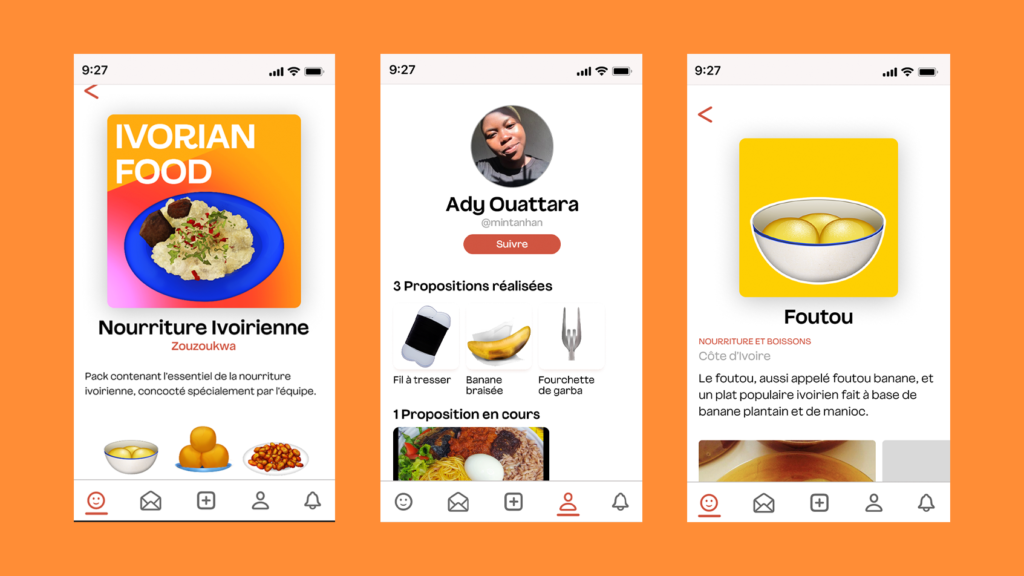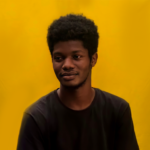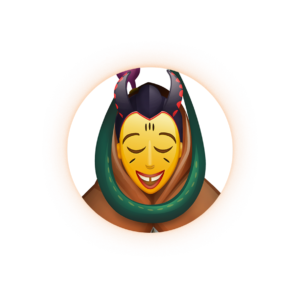Zouzoukwa is a project at the intersection of art, design, culture and technology promoting African cultures through emojis.
It began in 2018 as a challenge on Instagram, where I posted a new emoji representing an element of African cultures every day. The goal was to show the diversity and richness of the cultures of the continent, countering the stereotypes often seen in the media.
At the end of the challenge, I released an app allowing users to use the emojis as stickers on WhatsApp. Zouzoukwa quickly gained international recognition, being featured in outlets such as The Guardian, The New York Times, CNN, BBC, El País, Le Monde.
Now, we are taking Zouzoukwa to the next level: building a community platform where young Africans can contribute emoji ideas, create their own emoji packs to express themselves accurately and build together a library of authentic emojis promoting Africa.

Africa is one of the most culturally diverse continents in the world, yet its representation in digital spaces—particularly through something as simple as emojis—remains minimal and often stereotypical. This lack of representation limits cultural expression and hinders young Africans from seeing themselves in the global digital conversation.
Zouzoukwa is creating a community-driven platform where young Africans can submit, vote on, and co-create emojis that reflect the true diversity of their cultures. The platform empowers users to contribute to their own digital expression by allowing them to make custom emoji packs, export them to WhatsApp, and use them in everyday communication. More than an app, Zouzoukwa is a movement for authentic cultural representation in the digital age.

Africa is the youngest and fastest-growing continent, with a booming internet population. The demand for digital tools that reflect authentic cultural experiences is on the rise. Social media and messaging platforms are deeply embedded in the daily lives of young Africans, however there is a gap in culturally relevant content that truly resonates with them.
Zouzoukwa is uniquely positioned to fill this gap, empowering users to express their identities in a digital world that increasingly shapes social narratives and personal connections.
Zouzoukwa aims to be the leading platform for African digital expression, where every emoji is a story, and every story is a celebration of Africa’s rich cultures. By building a global community around user-driven creativity, we will inspire a new wave of digital content that honors the heritage and future of African culture.
Monetize and Sustain: Establish a sustainable business model that allows for scaling while maintaining accessibility

Commercial Licensing:
The Zouzoukwa emojis are free only for personal use in messaging and everyday conversations. For companies, organizations, or brands looking to use them in their marketing, communication or other commercial endeavors, Zouzoukwa will offer a licensing model. This allows businesses to integrate authentic African cultural elements into their branding while contributing to the sustainability of the project. Licensing fees will vary based on usage and reach, ensuring fair value for both small businesses and larger enterprises.
Sponsored Emojis:
This offers brands contributing to the culture through their products the chance to commission emojis, which will be organized into packs accessible to users. For example, the food company Sania funded the creation of 12 emojis featuring cultural items related to their products: alloco (fried plantains) and various fritters and cakes because they produce oil, and various Ivorian rice dishes because they sell rice. Sponsored packs help businesses boost brand visibility, thanks to the large user base from the app’s free access, and connect with a young, tech-savvy audience.
Contextual Advertising:
Businesses will be able to highlight their products related to the emojis. For instance, on the page for the Foutou emoji (an Ivorian dish), restaurants could pay to appear in a ‘Where to eat?’ section, or on pages for outfits like the Ghanaian Smock or Dashiki, brands could appear in a ‘Where to buy?’ section. This would create a direct link between the digital world and real life, offering people who want to explore the culture (like tourists) a more immersive and accessible way to experience it.

Founder & Designer

Software Engineer
